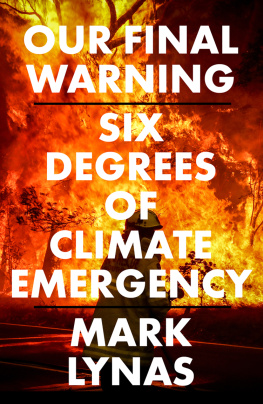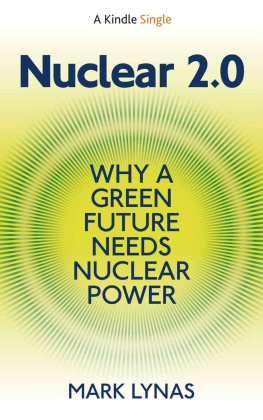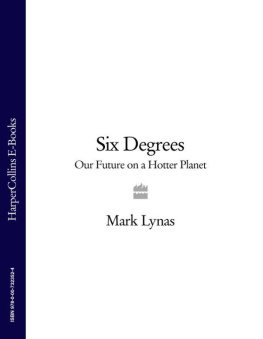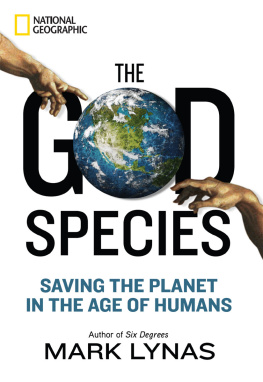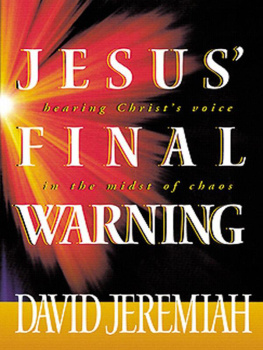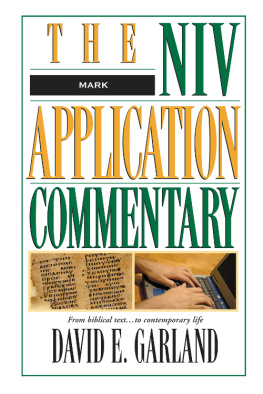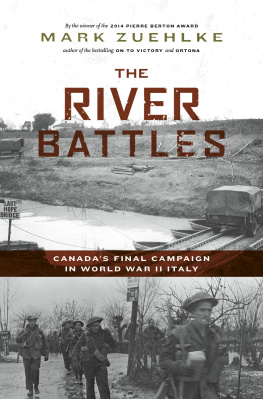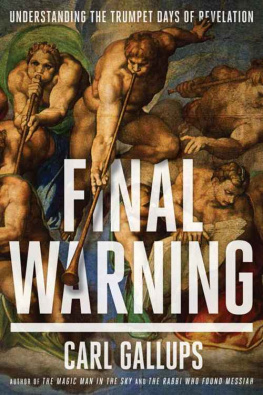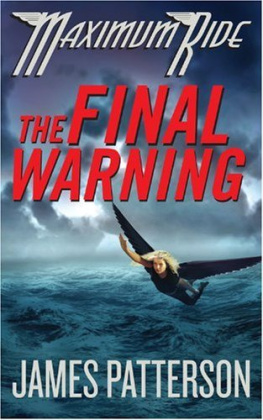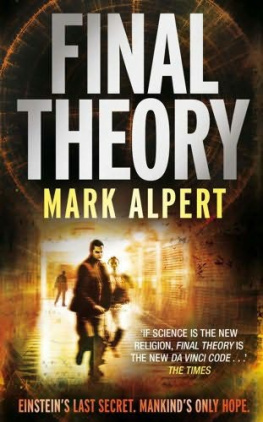Mark Lynas - Our Final Warning
Here you can read online Mark Lynas - Our Final Warning full text of the book (entire story) in english for free. Download pdf and epub, get meaning, cover and reviews about this ebook. year: 2020, publisher: HarperCollins Publishers, genre: Children. Description of the work, (preface) as well as reviews are available. Best literature library LitArk.com created for fans of good reading and offers a wide selection of genres:
Romance novel
Science fiction
Adventure
Detective
Science
History
Home and family
Prose
Art
Politics
Computer
Non-fiction
Religion
Business
Children
Humor
Choose a favorite category and find really read worthwhile books. Enjoy immersion in the world of imagination, feel the emotions of the characters or learn something new for yourself, make an fascinating discovery.
- Book:Our Final Warning
- Author:
- Publisher:HarperCollins Publishers
- Genre:
- Year:2020
- Rating:3 / 5
- Favourites:Add to favourites
- Your mark:
- 60
- 1
- 2
- 3
- 4
- 5
Our Final Warning: summary, description and annotation
We offer to read an annotation, description, summary or preface (depends on what the author of the book "Our Final Warning" wrote himself). If you haven't found the necessary information about the book — write in the comments, we will try to find it.
Our Final Warning — read online for free the complete book (whole text) full work
Below is the text of the book, divided by pages. System saving the place of the last page read, allows you to conveniently read the book "Our Final Warning" online for free, without having to search again every time where you left off. Put a bookmark, and you can go to the page where you finished reading at any time.
Font size:
Interval:
Bookmark:

Paul and Joan Rimmer
Together again
When I started writing this book I thought that we could probably survive climate change. Now I am not so sure. As you will read in these pages, we are already living in a world one degree warmer than that inhabited by our parents and grandparents. Two degrees Celsius, which will stress human societies and destroy many natural ecosystems such as rainforests and coral reefs, looms on the near horizon. At three degrees I now believe that the stability of human civilisation will be seriously imperilled, while at four degrees a full-scale global collapse of human societies is probable, accompanied by a mass extinction of the biosphere that will be the worst on Earth for tens or even hundreds of millions of years. By five degrees we will see massive positive feedbacks coming into play, driving further warming and climate impacts so extreme that they will leave most of the globe biologically uninhabitable, with humans reduced to a precarious existence in small refuges. At six degrees we risk triggering a runaway warming process that could render the biosphere completely extinct and for ever destroy the capacity of this planet to support life.
In the UN Paris Agreement signed in 2015, world leaders vowed to hold global temperature rise at 1.5C, or, failing that, 2C. So far they have entirely failed to keep their promises. To meet the 1.5C target we would have had to cut global emissions by nearly half within a decade, and reach net zero by mid-century. Instead, emissions have reached a new record-setting high every year since the agreement. Many countries have offered their Paris pledges, but even if these were to be fully complied with, their combined effect on emissions is so trivial that they would still take us headlong into the four-degree world. That is why I wanted to write a completely new, fully updated version of Six Degrees, my book that was first published in 2007, because while the worlds scientists have done an amazing job in conducting research and writing papers over the last two decades, somehow the full import of the science has failed to register on our political system. Each chapter of this book makes abundantly clear what every successive degree-by-degree rise in temperature will mean for human society and the planets natural systems. The situation has become desperately urgent, and nobody who reads this will be able to say they didnt know what was coming.
Even as I was writing this book, I could see the climate emergency continuing to escalate. When I began, Australia was still a normal country. Following the devastating wildfires of January 2020, which themselves followed record-breaking high temperatures that seared a drought-stricken nation, it no longer is. Millions of Australians endured weeks of living under a pall of smoke, as 12 million hectares of bush and farmland were incinerated in catastrophic mega-fires. The human death toll, currently standing at 33, is tragic enough. But spare a thought for the estimated billion wild animals that have also lost their lives. And remember too that there can be no return to normal. Normal has gone, for ever.
I cant tell you with any precision when the globe will reach different temperature levels in the future. This is not so much because the science is uncertain although to an extent it is but because the rapidity of warming this century will depend on decisions yet to be made about how far and fast carbon emissions continue to rise. If we stay on the current business-as-usual trajectory, we could see two degrees as soon as the early 2030s, three degrees around mid-century, and four degrees by 2075 or so. If were unlucky with positive feedbacks (more on them later in this book) from thawing permafrost in the Arctic or collapsing tropical rainforests, then we could be in for five or even six degrees by the centurys end. On the other hand, if politicians make serious and determined efforts to implement the Paris targets, with the United States coming back into the fold as part of that effort, we can still hold off two degrees until the latter part of the century, and stop three degrees or higher temperature rises from ever happening at all.
As to which of these two outcomes is more likely, I am sorry to say that I am now substantially more pessimistic about the future than I was when Six Degrees was first published. Back then I believed that if only enough people could be better informed about the reality of climate change, then surely the world would be moved to act. While there have been positive shifts, such as declining coal use in some countries and cheaper renewable energy, these are dwarfed both by rising emissions and an alarming trend towards denialism. By this I dont just mean the overt climate denial of some US politicians stupid enough to call global warming a hoax on Twitter. Nor am I simply referring to the populist backlash that seriously threatens liberal democratic values and has brought the political far right back into international ascendancy for the first time since the defeat of Hitler. (2007 already seems a much gentler world.) Im talking, in addition, about the kind of denial that we all practise, the implicatory denial of climate change that allows us to keep on living our lives as usual despite the obvious implications of what climate scientists are telling us. Its as if we dont really believe them.
After all, its still possible just to pretend that the world isnt warming, or that the rate of change is nothing exceptional, or that the warming we see could be the result of natural cycles or some such. Even the UNs Intergovernmental Panel on Climate Change (IPCC) admits this. In its 2014 report, IPCC experts stated that rising greenhouse gas concentrations in the atmosphere due to human activity are only extremely likely to have been the dominant cause of observed warming since the mid-20th century. In IPCC-speak, extremely likely translates to a precise numerically quantified meaning of 95100% probability. So yes, that does allow for a 5% probability that climate change is either natural or inexplicable with current knowledge. However, in 2019 a team of scientists re-evaluated these probabilities. Looking at three datasets of observed atmospheric temperatures combined with climate model outputs, they concluded that there is only a 1 in 3.5 million chance that current global warming is natural. That translates into about a 0.00003% chance that the US Republican Party is right. As the scientists wistfully conclude: Humanity cannot afford to ignore such clear signals.
Font size:
Interval:
Bookmark:
Similar books «Our Final Warning»
Look at similar books to Our Final Warning. We have selected literature similar in name and meaning in the hope of providing readers with more options to find new, interesting, not yet read works.
Discussion, reviews of the book Our Final Warning and just readers' own opinions. Leave your comments, write what you think about the work, its meaning or the main characters. Specify what exactly you liked and what you didn't like, and why you think so.

